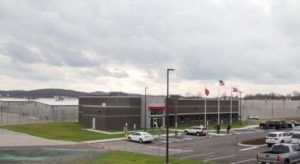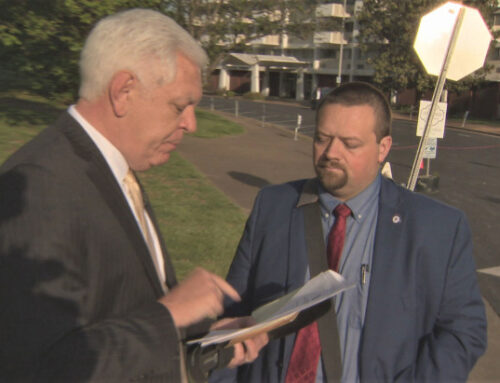We need a closer eye on what is happening in state prisons
When someone dies or is murdered in prison, the public deserves to know what happened.
Not in the sense that we need a streaming web channel depicting every movement, but in the sense that if something went wrong, if our government did or didn’t do something that contributed to or caused the death or injury to a prisoner or the people who work there, citizens should have an ability to find out.
More than two years ago, the Tennessee Comptroller released an audit that said the Tennessee Department of Correction was not adequately providing oversight of prison management, reducing its ability to operate safe and secure prisons.
Audit finds inadequate reporting of key information
One of the many problems identified was inadequate reporting of information, such as on inmate deaths and serious incidents. We learned in the audit that staff at state prisons and at prisons operated by CoreCivic, a large prison company that contracts with the state to run prisons, were found to improperly destroy public records. At one state prison, the security camera system sometimes overwrote footage after two weeks despite state instruction that all such video should be kept for a minimum of 90 days whether or not an incident was captured.
The auditor explained the concern about public records mismanagement: “Public records ensure a state agency’s official business is fair and transparent. Without retaining records in accordance with established (retention requirements), there is an increased risk that the department cannot effectively conduct its operations and assure the public, legislators, and other stakeholders about management decisions.”
Prisons must be transparent, just like any government agency. And their compliance with the public records law is even more important because prisons aren’t places where most people go and witness firsthand the operations.
CoreCivic refused access to video related to prisoner stabbing
In one recent public records request by the family of a prisoner stabbed to death in Trousdale Turner Correctional Center, CoreCivic refused access to surveillance video that would show what happened. Its attorney claimed that releasing any video would compromise security at the prison.
You’ve probably heard of the Trousdale prison. It’s been at the center of many complaints by families with loved ones there. The Nashville branch of the NAACP last year said the complaints have risen to such an inordinate and alarming level that the state should shut it down.
Others, including such organizations as the ACLU-Tennessee, have called attention to reports of abuse and violence, citing state audits going back to 2017 shortly after the facility opened.
So do we really know what’s going on in the prison? And are the denials to see the video justified?
The main argument by CoreCivic is that showing the video related to the stabbing “would endanger or compromise the security” of inmates or the prison.
In an email response to attorney Daniel Horwitz who is representing the family, CoreCivic’s attorney said that “an examination of the surveillance video footage would show precisely what the cameras capture and also what the cameras do not capture — or the blind spots within the housing unit.”
Redaction, cropping could eliminate security concern
While some deference should be made to security, so should some respect be given to the right to know when it comes to the circumstances leading to a prisoner’s death. In this instance, why can’t video footage be redacted or cropped in a way that would reasonably satisfy any security concern while still making available the relevant video that can provide answers?
Lawmakers have understood the need for such transparency. When they passed a law to allow confidentiality of surveillance video that would compromise a government building’s security, they made a special exception for surveillance video that involves “an act or incident involving public safety or security or possible criminal activity,” saying this video may be released.
True accountability of those who operate our prisons means access to records, including video records relevant to serious incidents. Allowing prison authorities to hide behind a blanket “building security” response allows prisons to hide their mistakes and operate in excessive secrecy.
Our government should operate safe and secure prisons. If it is failing, the public should be able to know so that citizens can press for change. Based on the state’s own assessment of its prison system and the number of complaints coming from some prisons, including Trousdale, it seems clear that we need a closer eye on what is happening within.





